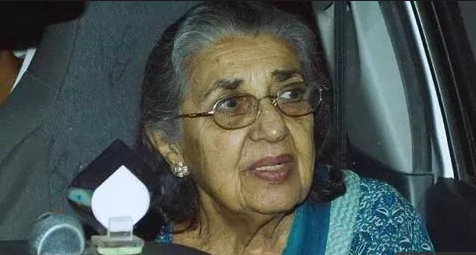Forty-eight days. Seven Fridays. And a loss of nearly Rs 300 crores. Finally, on April 20, Mercury, a Tamil film, silent nevertheless, released after a 48-day strike. For seven weeks, producers held out against Digital Service Providers (DSPs), seeking to quash the virtual print fee, paid by producers.
The strike started off with this one issue, but soon complaints of other nature mounted. There were calls for computerisation of ticket sales, reduction in star remuneration…. At one point, it seemed that the Tamil Film Producers’ Council was not fighting for one issue, but used the strike to find a solution to other pressing issues plaguing the industry.
The audience, meanwhile, made do with other entertainment options. Recommendations on web series were being sought and given on social media, and there was said to be a spurt in people opting for Netflix and Amazon Prime. A WhatsApp forward, unverified, quoted an auto driver as saying that the “itch” to watch a movie every Friday had all but vanished. Amid all this, the elephant in the room was steadfastly ignored, has the audience viewing habit changed?
In fact, actor Vishal, who heads the TFPC and is general secretary of the Nadigar Sangam, said that every single day of the 48 days of strike was stressful. “It is not a joke to make people – the producers, the artistes, the FEFSI union – understand [the issues] to stop work. Anywhere, anyone could have broken [ranks],” he told The Hindu.
After the strike was called off, it was announced that the revamp was successful and that E Cinema rates have been reduced by 50 per cent and that D Cinema would soon follow. Computerised tickets will come in place from June 1.
Vishal tweeted that online tickets would be subsidised. In an interview, he also mentioned that the “monopoly” among DSPs (the reference was to Qube that has an agreement with more than 700 theatres in Tamil Nadu) had been broken and that 178 theatres had signed up with other providers. It was announced that the TFPC would put in place an online booking facility, with a transaction charge of Rs. 4 against against Rs. 30 elsewhere.
Yes da “revamp”s over..v r gud 2 go 4 theatrical releases n shoot starts soon 1.Ecinema rates reduced to 50%.D cinema on da way.computerised tcktn fm https://t.co/FygSgCSDDw cinema 2 b 100% https://t.co/RHwEOYJ4yy tcktn 2 b subsidised.flexibility of txtng wil benefit small movies
— Vishal (@VishalKOfficial) April 18, 2018
/2. My sincere thanks to Fefsi workers n RK Selvamani sir n all producers who stood United for this to https://t.co/FGoMuL7DdP sincere thanks to Kadambur Raju sir n Veeramani sir. Gud times ahead for Tamil cinema.god bless
— Vishal (@VishalKOfficial) April 18, 2018
Following the strike, Qube brought own the VPF charges from Rs 20,000 to Rs 10,000 and weekly charges to Rs 5,000 from Rs 9,500. Says Senthil Kumar, co-founder, Qube: “We agreed to the 50 per cent reduction in rates for E-cinema and will check if this is sustainable for us in this six-month trial period. If not, we’ll go back to the TFPC and renegotiate.”

What is the difference between D Cinema and E Cinema?
All Hollywood movies are released on D Cinema, which offers a truly digital experience, and is a Digital Cinema Initiatives (DCI) compliant. Digital Cinema Initiatives, LLC (DCI), created in March, 2002, is a joint venture of Disney, Fox, Paramount, Sony Pictures Entertainment, Universal and Warner Bros. Studios. Among its purposes is ensuring a uniform and high level of technical performance, reliability and quality control.
Tamil films release both in E and D Cinema. E Cinema uses electronic projection equipment and is considered a notch below D Cinema.
During the strike, the TFPC signed a deal with Aerox, a DSP that reportedly offers a 50 per cent reduction in the current VPF. Also, actors such as Vishal, Suriya and Karthi offered to offset producers’ expenditure by paying for their assistants themselves.
Soon, it was reported that the Nadigar Sangam was meeting to see what it could do about star salaries. While social media was abuzz with topics that might or might not have been discussed, including actors being paid for television interviews, there has been no official word as yet. Actor Karthi, treasurer, said the Sangam would have one more round of talks with members before submitting an official statement to the TFPC.
Qube, accused by the TFPC of being a monopoly, outright rejects the accusation. Says Senthil: “I’d like to emphatically state that Qube is not a monopoly and the TFPC has constantly misinformed members and the public by confusing exclusivity with monopoly. We contract with theatres for certain exclusive rights and theatres are happy to provide us these rights as their investment into the digital cinema equipment. But we are not a monopoly by any definition of the term! Nor do we behave like one because a monopoly doesn’t bend and reduce rates by 18-23 per cent like we did even before this strike started.”
So, has Qube lost any of its theatres to the new DSP or competitors such as Sony? “We continue to be present in approximately 720 screens in Tamil Nadu and don’t have any information on the 200 screens that the new DSP is supposed to have signed up,” says Senthil.
That’s something Tirupur Subramaniam, president, West Zone Theatre Owners’ Association, agrees with too. “As far as I know, no one has changed DSPs in the Coimbatore belt. And, why are they calling Qube a monopoly? There are other providers such as Sony in the market. This argument does not make sense. Ultimately, theatre owners must decide which DSP they want to be in business with. Each theatre has a style of business and it is not fair that there is interference from another association. As for the new DSP everyone is speaking about, there are no terms and conditions laid out as yet, no demo given… Also, it is not like every contract is cast in stone. Even with Qube, if we wish to change providers, we can, with prior notice.”
Will the rate reduction by Qube bring significant savings to producers? A veteran says the savings as well as the loss is notional. It is estimated that the industry lost out on business of about Rs. 300 crores during the strike. Qube says that it faced losses too, because theatres did not play any new movies across Tamil Nadu, but Senthil says that it is “difficult to quantify this separately as we have multiple businesses. This is not a good deal for us and we were forced to accept to try it for six months because our theatres were desperate without any content, with even Telugu movies being stopped last week. We hope that movies will have wider releases and make up some of the losses, but I understand the TFPC is also working to limit release sizes now.”
So, six months down the line, if the rates do not work out, the DSP plans to sit down with producers for another round of discussions.
From the distributor’s point of view, Subramaniam says they requested the government to keep the MRP of tickets at Rs. 150, but give them an option of flexible pricing. That way, depending on the budget of the film, the price can be reduced, but never hiked above Rs 150.
The sceptics continue to ask: Was the strike necessary? Senthil feels it was not. “The losses of Rs. 250-Rs. 300 crores that the industry incurred were disproportionately high for the savings from just the VPF reduction; DSPs lost about Rs. 3 crore during the period.”
There are also accusations that Qube has managed to retain its leadership position unfairly. To this, Senthil says: “We really work hard to ensure that theatres are happy with our service and don’t suffer show losses. While we are happy that theatres are sticking with us, we understand that movies are their livelihood and if they are denied content for an extended period like this, they will be forced to agree to move to other DSPs. The strategy adopted by the TFPC was extremely unfair and monopolistic in nature.”
Producer, National Award winning author and Founder-Dean of BOFTA Film Institute G Dhananjayan, among those in a position to analyse the issue from all perspectives, says that any gain must be seen in the larger context. “We are looking at every aspect to reduce the overall cost. And so, an expenditure, however small in isolation, will still make a difference. Everyone is happy work has resumed and, without doubt, the small producer has benefited. If that small producer makes three films a year, then he saves substantially.”
As for the viability of the changes, he says, “Right now, I do not want to be a pessimist. This is the beginning of the much-needed change in the industry.”
Recommended
A veteran producer takes a different stand. He wonders if the cost saved on small expenditure will make a difference when star salaries have hit the roof and not much has been done in that aspect. But Dhananjayan says that once transparency comes in — in collections, taxes, GST and the like, which the TFPC is striving for — actors will know their true worth and charge accordingly. “Else, when data is being fudged, why will they agree?”
Also, any change will take time to set in and yield benefits, he says. “We have to give it time. Even in Bollywood, this is not the norm. We are moving towards that and will get to a fully-functional transparent system in some years. Until then, we have to build on short-term gains and hope they will result in lasting benefits to all.”
(With inputs from Vinayak Mohan)



